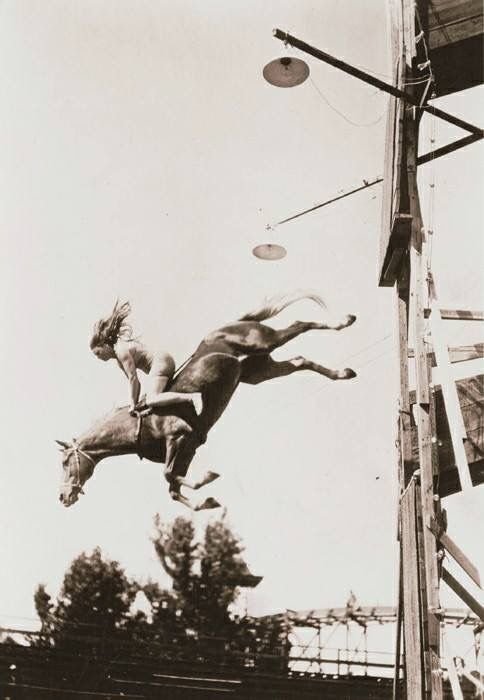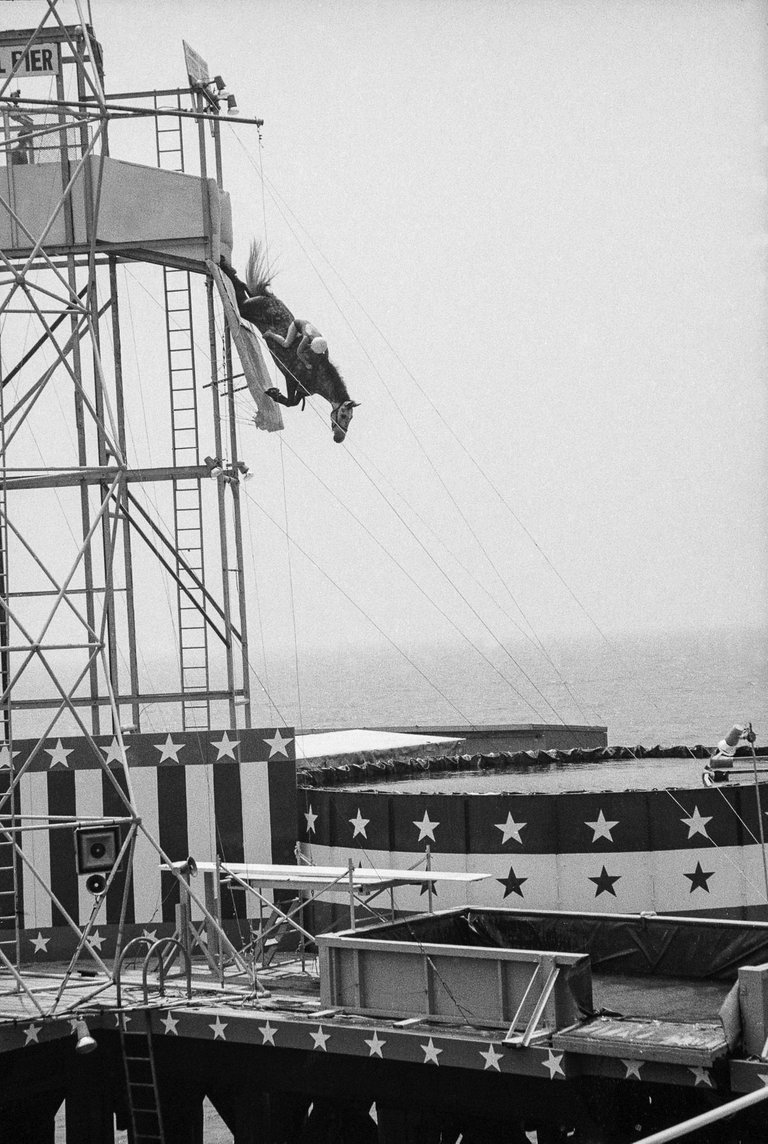Horse diving used to be a popular attraction in mid 1880s, believe it or not.
A diving horse is an attraction that was popular in the mid-1880s, in which a horse would dive into a pool of water, sometimes from as high as 60 feet.
History: William "Doc" Carver "invented" horse diving exhibitions. Allegedly, in 1881 Carver was crossing a bridge over Platte River (Nebraska) which partially collapsed. His horse fell/dived into the waters below, inspiring Carver to develop the diving horse act. Carver trained various animals and went on tour. His partner, Al Floyd Carver, constructed the ramp and tower and his rider Lorena Carver was the first rider. Sonora Webster joined the show in 1924. She later married Al Floyd Carver. The show became a permanent fixture at Atlantic City's popular venue Steel Pier. There, Sonora, Al and Lorena continued the show following his death.
In 1931, Sonora and her horse Red Lips lost their balance on the platform. Sonora survived the fall, but was blinded (caused by detached retinas in both eyes). She continued horse-diving while blind. A film based on her life (as recounted in her memoir A Girl and Five Brave Horses), Wild Hearts Can’t Be Broken, was released in 1991.
Animal Welfare: A horse diving show was an in residence act held at New Jersey's Steel Peer. Pressure from animal rights activists, and declining demand led to the act being permanently shuttered in the 1970s. The horses sometimes dove four times a day, seven days a week. An attempt in 2012 to revive the shows at Steel Pier was halted when animal welfare advocates petitioned the owners not to hold the shows. The president of the Humane Society of the United States stated: "This is a merciful end to a colossally stupid idea."
Loading of the pier: Atlantic Ciy's Steel Pier was also used to mount a measuring device to monitor changes in the sea level of the Atlantic Ocean. However, changes in sea level at the Pier turned out to have been caused by the weight of the crowds gathered to watch the diving horses. Measurements from 1929 to 1978 indicated sea level rise – when the crowds were regular and caused the Pier to settle slightly in the soft, sandy bottom – except during the horse-jumping hiatus from 1945 to 1953 when the lack of regular crowds allowed the Pier to rise slightly.



Hi! I am a robot. I just upvoted you! I found similar content that readers might be interested in:
https://www.facebook.com/groups/579546402072901
Yikes...
That is a cool piece of history. The horse had to have trusted her in order to make that dive. Wow. I can see why people would gather.